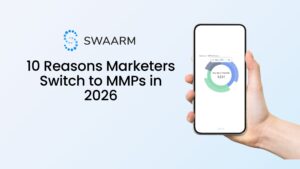Do you know that around 33% of bloggers never make money online? Some content creators make up to a whopping $50,000 in a year. When content creators and website owners put in their best efforts, they can find ways to earn money online. They can also rely on paid ads and other campaigns to assist them in their endeavors. Maximizing return on investment (ROI) from search monetization campaigns is critical for businesses seeking optimal success with their digital marketing initiatives.
At its core, search monetization involves using search engine advertising platforms to drive targeted traffic and conversions. Understanding the landscape is paramount, from understanding different platforms and key metrics used to measure campaign success, such as click–through rate (CTR), conversion rate, and cost per acquisition (CPA) metrics – they play a pivotal role in measuring ROI and should never be disregarded.
Identification of target audiences and niche keywords is equally essential to search monetization efforts; businesses that successfully identify them can maximize ROI while realizing sustainable growth through search monetization efforts. By mastering these foundational elements, businesses can build the necessary infrastructure to maximize return on investment (ROI).
Optimization of campaigns is vital to staying competitive in search monetization and realizing maximum return on investment (ROI). Below are some strategies and tips that will enhance the efficiency of your search monetization efforts.
1. Keyword research and selection:
Utilizing keyword research tools effectively
Keyword research is at the core of any successful search campaign, and tools like Swaarm Search Monetization Platform, Google Keyword Planner, SEMrush, and Ahrefs provide invaluable insight into search volume, competition, and related keywords. By employing these tools effectively, marketers can identify high-performing keywords relevant to their target audience and industry.
Long-tail keywords offer numerous advantages and strategies
These longer and more specific phrases typically have lower competition and conversion rates than shorter keywords, drawing in users with specific intent for more qualified traffic. Integrating long-tail keywords into your campaign strategy will help you target niche markets while increasing overall performance.
2. Ad copy optimization
Crafting engaging ad copy
Your ad copy serves as the initial point of interaction between your brand and potential customers. Writing appealing copy that grabs users’ attention and motivates them to click is crucial to getting conversions underway. Ensure your messages focus on unique selling points and pain points and that your ads address them and provide clear calls–to–action (CTAs).
Ad extensions can increase visibility
Ad extensions provide additional information and opportunities for users to engage with your ads, like site links, callouts, and structured snippets that allow you to showcase more information about your products or services directly in search results. By strategically using ad extensions, you can boost ad visibility, increase click–through rates, and drive more conversions.
3. Landing page optimization
Relevance and consistency are keys
Landing pages are vital in turning clicks into conversions, so ensure they are highly relevant to your campaign’s ad copy and keywords. Furthermore, ensure consistency in messaging, branding, and design elements to provide seamless user experiences from click to conversion.
A/B Testing to increase conversion rates
Constant testing and optimizing landing pages are crucial to improving conversion rates. Use A/B tests to compare elements such as headlines, copy, imagery, CTA buttons, etc. Analyze results to identify which variant performs better and implement changes accordingly for incremental improvements over time in conversion rates.
Photo by Nick Morrison on Unsplash
4. Conversion tracking and analytic services
Implementing effective tracking mechanisms
Establishing effective tracking mechanisms is essential to understanding the success of search monetization campaigns. Tools like Swaarm Search Monetization Platform, Google Analytics, and other conversion tracking pixels allow you to monitor key metrics like clicks, conversions, and revenue; by accurately tracking user interactions across your digital properties, you gain insights into campaign performance and individual user behaviors.
Analyzing data to identify areas for improvement
Analysis is at the core of optimization efforts. Learn and dig deeper into your analytics to uncover patterns, trends, and areas for opportunity; identify high-performing keywords, ad creatives, landing pages, and underperforming elements that need optimization; utilize data–driven insights to refine strategies more effectively, allocate resources effectively, and drive better results.
5. Applying AI and machine learning
Integrate AI-powered bidding strategies
Leverage the power of artificial intelligence (AI) and machine learning (ML) to optimize bidding strategies and boost campaign performance. Platforms like Google Ads offer AI-powered options such as Target CPA (Cost Per Acquisition) and ROAS (Return On Ad Spend), which automatically adjust bids based on historical data analysis and predictive models to create better ad placements and improve ROI for advertisers. By taking advantage of this method of bidding, advertisers can achieve enhanced ad placements and improved ROI results for their campaigns.
Automated optimization based on performance data
Machine learning algorithms can rapidly analyze vast amounts of performance data in real time to detect patterns and tailor campaign settings accordingly. Automated bidding, ad rotation, and budget allocation using predictive models allow advertisers to streamline campaign management and increase efficiency – AI–powered automation will enable marketers to focus more on strategy and creativity while leaving algorithms to take care of the heavy lifting.
6. Assure compliance and quality:
Ad policy guidelines
Each advertising platform has its own set of rules governing ad content, targeting, and user experience that one should observe if one wants their account to remain healthy. Ascertain your ads conform with all relevant regulations and standards by familiarizing yourself with platform-specific policies to maintain account health and avoid penalties or suspensions.
Avoid misleading or deceptive practices
Uphold ethical advertising standards by adhering to ethical advertising practices and not including misleading or deceptive content in your ads. Give accurate information, transparent pricing structures, and clear disclosures for users. Do not resort to clickbait tactics or false promises that might damage your audience’s trust.
Quality score optimization:
Optimizing quality scores is crucial to increasing ad performance and lowering costs when running search monetization campaigns. Focus on creating relevant ad copy, selecting appropriate keywords, and optimizing landing pages so users have a seamless user experience. By adhering to best practices and continuously refining campaigns, your quality score will improve, as will your results in search advertising efforts.
Conclusion
Maximizing ROI in search monetization campaigns requires an integrated approach encompassing strategic planning, meticulous implementation, and ongoing optimization.
Businesses can increase results and maximize returns from advertising investments by employing key strategies like effective keyword research, compelling ad copywriting, and in-depth conversion tracking, underscoring the significance of continuous optimization and adaptation in response to changing market dynamics, consumer behaviors, and algorithm updates.
Monitoring performance metrics, examining data insights, and refining campaign strategies are key to remaining competitive and increasing ROI over time. Adopting new techniques and tools is crucial to innovation and staying at the forefront of a constantly shifting digital environment. By staying abreast of emerging trends, leveraging cutting–edge technologies, and taking bold risks with search monetization efforts, businesses can open up unexplored avenues for growth and success in search monetization endeavors.






